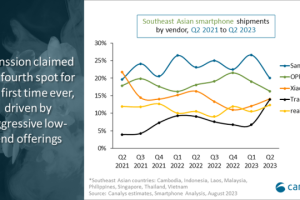Dr. J.C. Mohan, Director of Cardiology, Fortis Hospital, Delhi
People with diabetes are two to four times more likely to have a heart attack or stroke than those without the disease. During heart attack, a section of the heart muscles does not receive blood. The lack of blood flow can cause the heart tissues to die and scar. There is no doubt that every heart attack is life threatening and requires immediate attention. In most cases, heart attack symptoms include sharp chest pain and breathlessness, but in some instances, there are no visible symptoms. A heart attack in which a person does not feel chest pain or other symptoms is called as a silent heart attack.
A silent heart attack can happen to anyone, but people with diabetes are more predisposed to experience silent heart attacks. Around 25-30% of heart attacks in people with diabetes are silent, putting people with diabetes at significant risk.
The key to recovering from a heart attack is the speed at which treatment is received. Those who get the required timely medical attention have an excellent prognosis; with modern treatment survival from a heart attack goes around 90%. In the case of a silent heart attack, the patient is not aware of the attack and valuable time is wasted leading to permanent heart damage. Twice as many people die from silent heart attacks as compared to those that experience chest pain.
The cause of a heart attack, silent or otherwise, is almost always Atherosclerosis (the progressive narrowing of the heart’s arteries). Uncontrolled diabetes leads to significant cardiac health risk, because of changes in the blood vessels produced by hyperglycemia (high blood sugars), changes in blood coagulation properties, and changes in the plaques that form in the blood vessels of people with diabetes.
People with diabetes usually don’t feel chest pain because of nerve damage (autonomic neuropathy) caused by poorly controlled diabetes. Anyone who has experienced a silent heart attack is at greater risk for another, more serious heart attack and should be closely monitored by a cardiologist.
Symptoms of a silent heart attack include:
- Discomfort or pain in the chest ,back, arms, neck or stomach
- Shortness of breath
- Sweating or lightheadedness
- Nausea or indigestion
- Extreme weakness or anxiety
In a person with diabetes, the only signs of a heart attack sometimes may be a rising blood sugar level and weakness that does not go away. If a person feels he/she may be having a heart attack, it is necessary to seek medical attention immediately.
The best way to identify silent heart disease is through careful study of medical history, ECG (electrocardiogram), stress test or echocardiogram (ultrasound of the heart) and testing blood for cardiac enzymes which can reveal whether a silent heart attack has occurred. While there is no way of predicting silent heart attack, but statistically, the greater the number of risk factors like poorly controlled diabetes, high blood pressure, high blood cholesterol, smoking, obesity, sedentary lifestyle higher the chances of a silent heart attack.
Routine heart screening, annual exams for cholesterol, blood pressure and electrocardiogram tests along with regular blood glucose monitoring can reduce the risk factor for silent heart attack.
Certain lifestyle changes like a healthy diet, regular physical activity, weight loss, smoking cessation, limited alcohol consumption and proper medication can reduce the risk of heart disease.
Early use of insulin can add flexibility and good control in life of a person with diabetes. HbA1c tests should be taken to measures average blood glucose over 3 months to ensure effective blood sugar level controls. Heart and vascular disease often go hand-in-hand with diabetes. However by making healthy lifestyle choices and by following your doctor’s advice, people with diabetes can enjoy a healthy and long life.




























